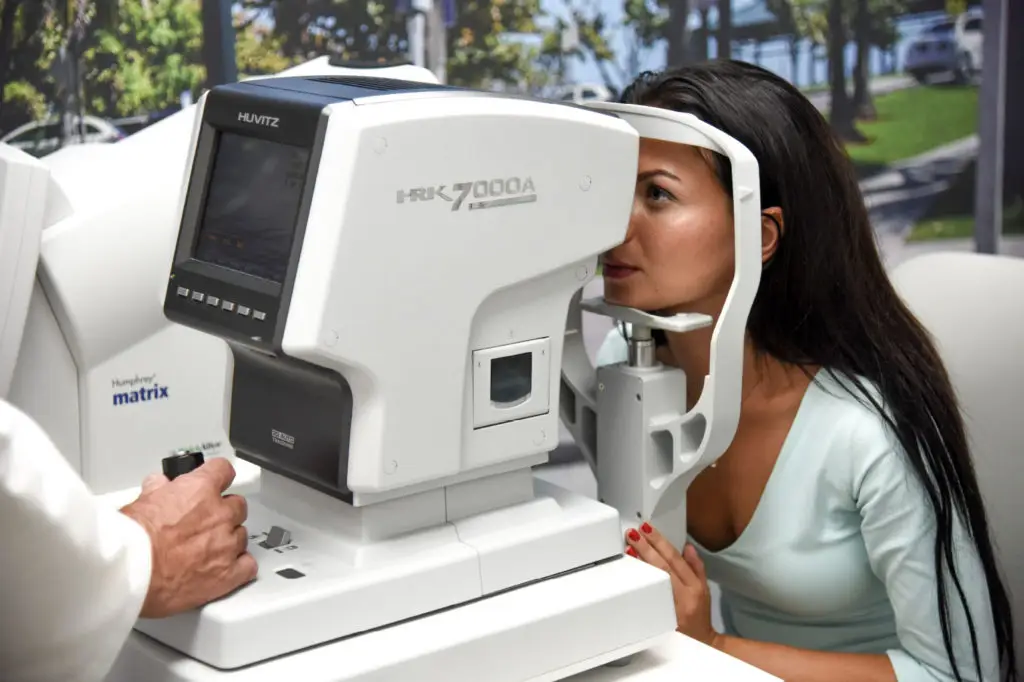
How often you should schedule an eye exam will vary depending on your risk factor and even your age. We recommend children around the age of six months old should have their first eye exam. Then they should come again near their third birthday and before first grade. For anyone age six to 60 whose vision wouldn’t be “at-risk”, they should go every other year or every year. The frequency at which you have eye exams should increase for those who are older than 60. If you’re still unsure, contact us and our Optometrist will help you determine how often.
A person’s vision can be “at-risk” depending on a few things like prescription medication. There are prescription medications with side effects that affect vision, such as dry eye. It is important that you your eye health so that it doesn’t lead to other complications. The use of contact lenses has led to an increase to your risk of infection. At-risk vision can leave you vulnerable to eye disease such as diabetes, hypertension or worse
Frequent Headaches– The cause of headaches can vary and one of those causes is digital eye strain.
Bright Flashes (Floaters) – On occasion floaters can be normal, but if you notice newer ones, schedule an appointment ASAP. Especially if you’re losing peripheral vision or seeing bright flashes. These are common symptoms of retinal detachment, which requires treatment to preserve your vision.
Light Sensitivity – Light sensitivity is usually not a problem, but when it becomes bad, you may have an eye infection. The important thing is to be aware of how light affects you. But if you’re unsure our Optometrist can help you.
Difficulty Driving at Night – If street signs and road lines become difficult to see, it could be a sign of nearsightedness or vision loss. But also it could be as simple as needing another prescription or could be a symptom of an eye disease.
We all forget someones birthday, but don’t forget your routine eye exams. If you are unsure of how long it has been since your last exam, then schedule one today. An eye exam can inform you about symptoms you might not even notice. You could even be someone who doesn’t wear prescriptions and now need glasses. We can’t wait to be able to help you improve your vision.
Phone: (561) 221-6636
Email: info@bocaview.com
21126 St Andrews Blvd.
Boca Raton, FL 33433
Mon – Fri: 9:00 am – 6:00 pm
Saturday: 9:00 am – 5:00 pm
Sunday: Closed